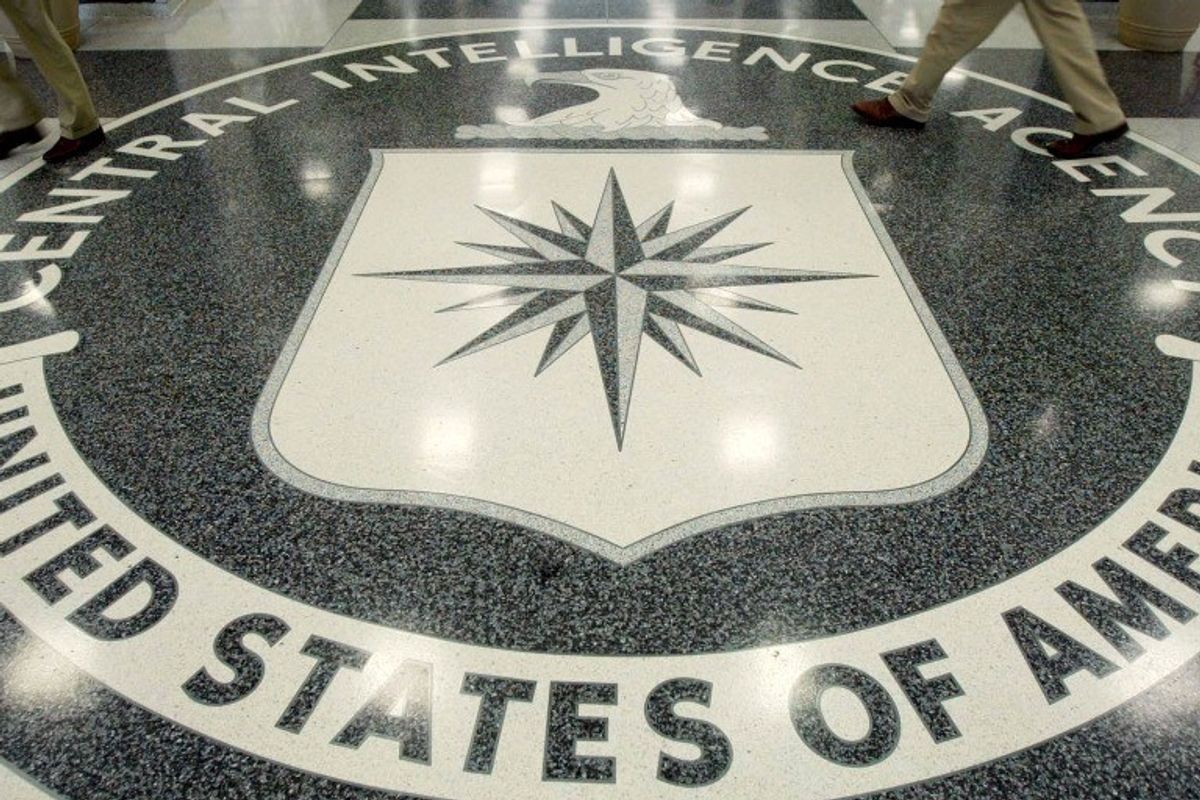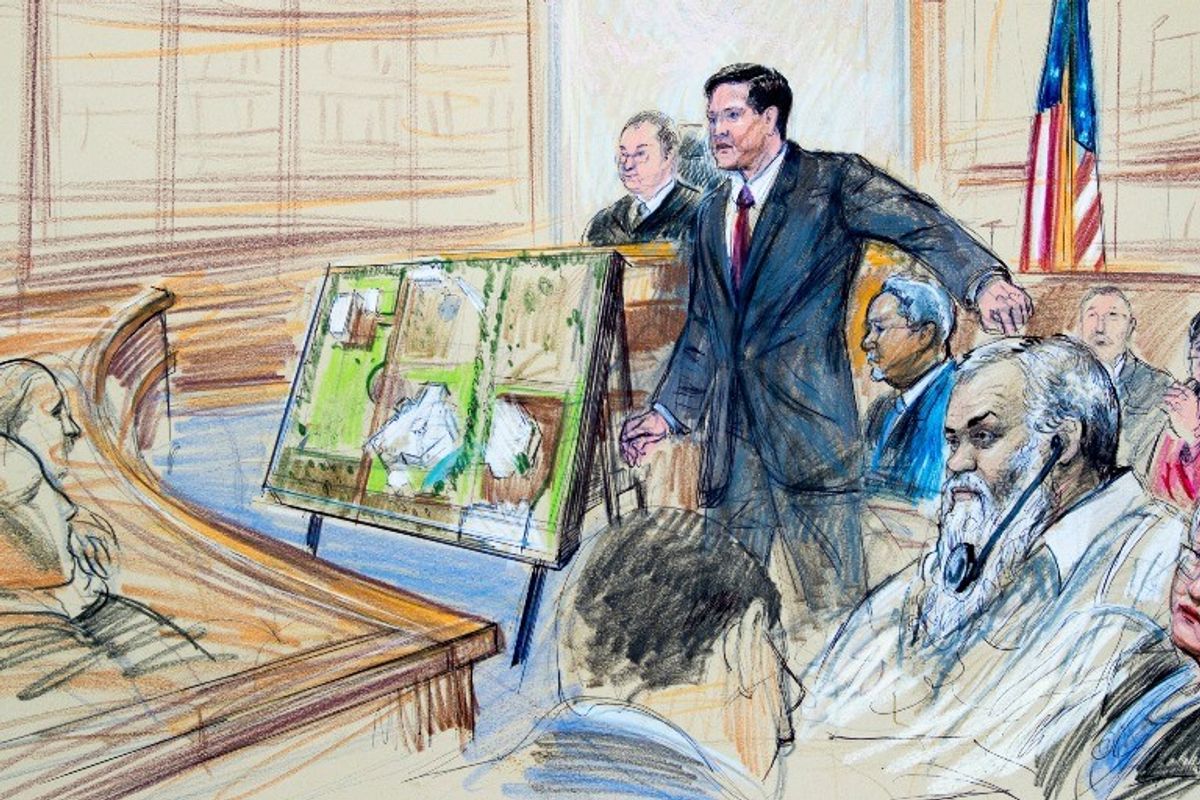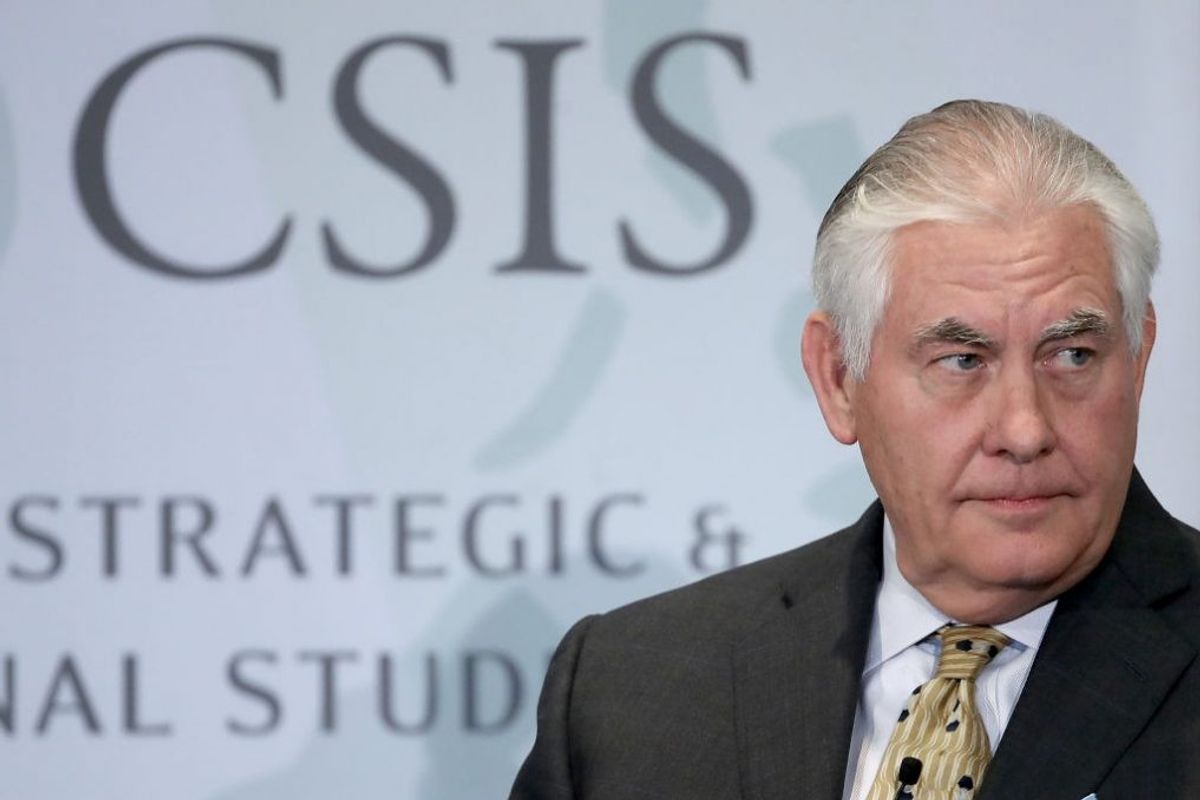The State Department’s Diplomatic Security Service, which grew out of the Inman Report recommendations, was never meant to be a war zone security force. But then again, diplomats were never meant to conduct business as usual in places that were still, in effect, war zones. Simply put: Iraq was a game changer.
The game started to change in 2003, when The White House tapped retired ambassador Paul Bremer to take control of the Coalition Provisional Authority, which had been tasked with facilitating the handover of power from the U.S. to an Iraqi government. That meant that U.S. diplomats had to be on hand to facilitate the enormous undertaking of helping to rebuild a destroyed country. Insurgents were ramping up attacks across the country in an effort to disrupt rebuilding efforts and the diplomats who volunteered to serve were facing risks they had never been trained to face.
Ambassador Patrick Kennedy, who at the time was serving as a top advisor to Bremer, called on the Vice Chairman of the Joint Chiefs of Staff for help with security, but General Peter Pace delivered a solemn answer; the military had its hands full. The protection of diplomats was something that would have to fall to a contracted protection force.
“The Pentagon told me, we simply cannot get you any more personnel, and we’re going to send you contractors,” Kennedy told me when I sat down to interview him for a book about the rise and fall of Blackwater, one of the first and most notorious firms contracted to provide this type of security.
While that first contract was technically executed by the Department of Defense, that responsibility would eventually shift to the Bureau of Diplomatic Security, which institutionalized the practice of supplementing their protection force with contracted help. Since then, private security contractors have played an essential role in enabling the U.S. government's diplomatic, humanitarian, and intelligence missions overseas, particularly those in high-threat environments.
But there were incidents like the shooting of unarmed civilians in a Baghdad traffic circle in 2007 that nearly brought the State Department’s ability to function in Iraq to a grinding halt. As a result, corrections were made to the process. More companies provide these services today than ever before, preventing the State Department’s reliance on any one company. Laws, reporting requirements and oversight are now more clearly defined.
Back in Washington, the buzzword became “inherently governmental,” meaning that jobs deemed as such should only be assigned to on-staff government employees. But, as is typical in Washington, the debate then turned to defining just what “inherently governmental” really meant, although everyone knew that the use of contractors would never go away.
Twelve years later, the use of contractors in the role of protectors has become the norm, and has even expanded, with hired help providing security protection in record numbers for other U.S. agencies pursuing critical intelligence and military missions overseas.
I remember getting a call from an old friend in the summer of 2013. He was a contractor working for an intelligence agency and something had happened that he had wanted to tell me about for months, but just couldn’t do it. What had happened was Benghazi. He was there on the ground that night and was one of the men who eventually wrote a book about his experiences, which is soon to be released as a major motion picture.
“Will you write our story?” he asked me. I had been in war zones with him and understood what he and his colleagues faced on a regular basis. It was difficult to decline his request, but I did for a host of reasons, most of them political. I am not political and know how quickly it can skew a debate and focus public attention on things that are irrelevant to keeping Americans safe. I feared that the focus of the story would not be on the experiences and incredible sacrifices those men made that night as much as it would be used as political fodder before the next election. I don’t regret the choice, but I’m glad their story was told. Benghazi was a tragic reminder of the importance of America’s security posture overseas, and contractors are an important part of that security posture. It was also a glaring reminder that accepting greater risk is no longer something only reserved for the military.













